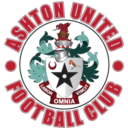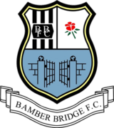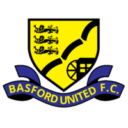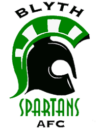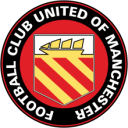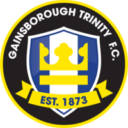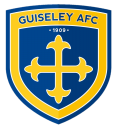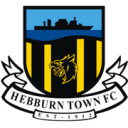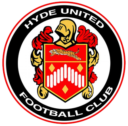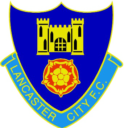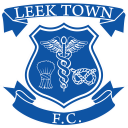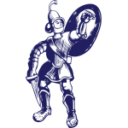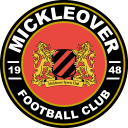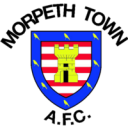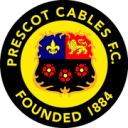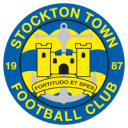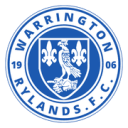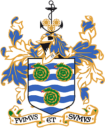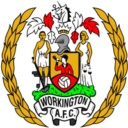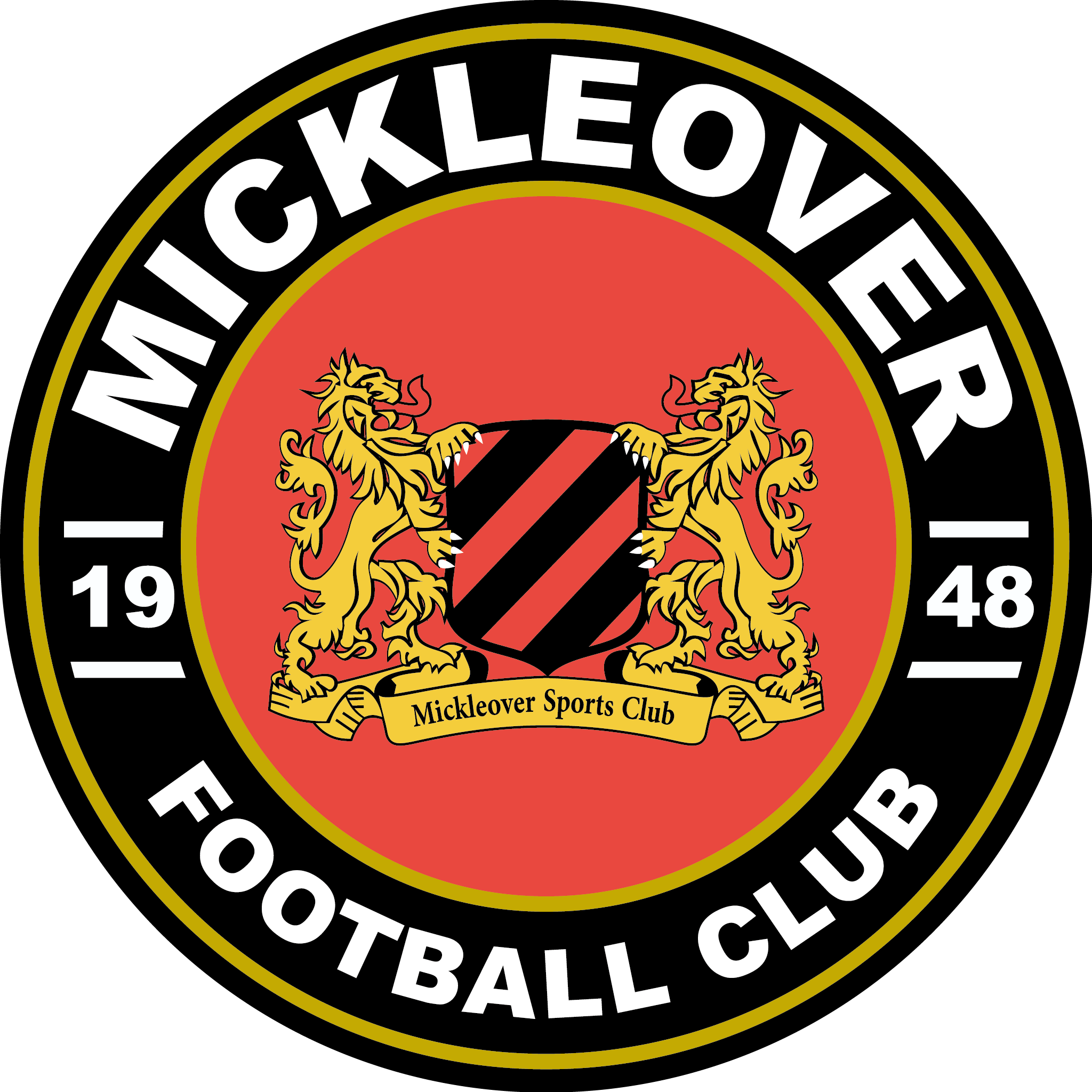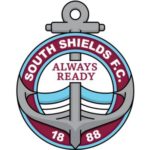
League: NPL Premier Division

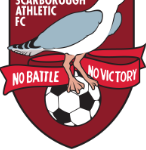
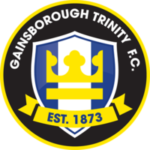

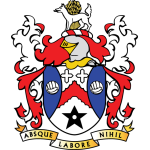
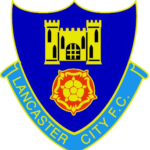
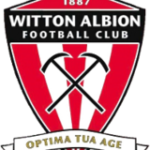
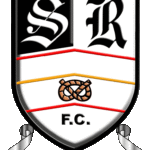
Stafford Rangers
Despite extensive research, no one has been able to prove conclusively when Stafford Rangers was actually formed, as early minute books were destroyed during the First World War. Rangers’ formation year is recognised as 1876 because of articles in the local Advertiser newspaper, but an alternative theory on Rangers’ formation date, printed in the Sentinel newspaper during 1891, suggests that the club was founded by a Bible class in 1877.
Rangers’ early matches were cup games and friendlies, with the club reaching the FA Cup First Round in both 1884–85 and 1885–86. The club then had spells in the Shropshire League, Birmingham League and North Staffordshire League up to the turn of the century, and moved to their present Marston Road home in 1896. In 1900–01 Stafford rejoined the Birmingham League and in 1904–05 had an FA Cup run to the last Qualifying Round bowing out in a replay at Second Division Blackpool. They were demoted to the Birmingham Combination in 1912 but won the championship at the first attempt (1912–13) and then finished runners-up in two of the next four seasons either side of the First World War. Rangers won the Birmingham League title in 1926–27, twice finished runners-up (1928–29 and 1929–30) and were twice third in five memorable seasons. During this period a total of 542 league goals were scored with striker Eddie Cameron regularly scoring goals. Due to financial troubles the team spent the mid to late 1930s struggling to avoid re-election and in one game were so short of players that the club secretary R.P. Brown had to play and actually scored a goal. During April 1935 a successful appeal for £100 to pay creditors enabled the club to survive. When war broke out in 1939, Rangers participated in an emergency Birmingham League during the 1939–40 season, finishing as runners-up, and then disbanded.
Post-war
After the Second World War the club reformed and played in the Birmingham Combination for six seasons, achieving a highest position of 6th in 1950–51. With a view to progress, Rangers joined the Cheshire County Football League in 1952 and finished 3rd in the 1954–55 season. However, Rangers’ spell in the Cheshire Football League was generally one of struggle and during the early sixties financial difficulties again threatened the club’s existence. There were, however, some positive results, including the seven goals scored by Les Box in an 11–0 FA Cup victory over Dudley Town during September 1957.
In 1965, the appointment of Colin Hutchinson as manager started an improvement. Rangers won the 1967–68 Cheshire League Cup and following season finished as Cheshire League runners-up to earn a place in the Northern Premier League.
The seventies were the most successful era in the club’s history. With Roy Chapman as manager, the club recorded a Northern Premier League Championship, FA Trophy and Staffordshire Senior Cup treble in season 1973–74; with strike partners Ray Davies & Dave Williams scoring a club record of 58 goals in a single season. However, they failed to gain election to the Football League, and have never since finished high enough to enter the Football League.
Three seasons later Rangers progressed to the FA Cup Fourth Round defeating Stockport County, Halifax Town and Rotherham United on the way to a defeat against Peterborough United in front of a crowd of 31,160 at Stoke City‘s Victoria Ground. The home Third Round tie with Rotherham attracted a record of 8,536 people to Marston Road. After Chapman had departed to manage League club Stockport County, Rangers were again at Wembley Stadium in 1975–76 for their second FA Trophy Final but they lost to Scarborough 3–2 after extra time. Roy Chapmanreturned as manager and success continued with a second FA Trophy Final win in 1979, this time against Kettering Town.
Rangers became founder members of the Alliance Premier League but this coincided with the club finishing low in the league, as various managers found it difficult to follow the success of the seventies. After four seasons Rangers were relegated to the Northern Premier League. This form continued, but with the appointment of Ron Reid as manager during the 1983–84 season as manager the club soon began to rebuild its reputation and won the 1984–85 League title. Back in the Alliance, the Bob Lord Trophy, Jim Thompson Shield and Staffordshire Senior Cup were all won within two seasons. During the late eighties and early nineties, Rangers struggled in the Conference, with six managers in seven seasons following Reid’s departure in May 1988. The sale of striker Stan Collymore to Crystal Palace in December 1990 for a substantial six-figure fee stands out in this period. Under the management of Dennis Booth, Rangers enjoyed a tremendous 1992–93 campaign. In the league they finished 6th and reached the FA Cup Second Round, defeating Lincoln City in a First Round replay at Marston Road.
After Booth departed for Bristol Rovers, Rangers found success difficult to achieve and were relegated from the Conference to the Southern League Premier Division at the end of the 1994–95 season. The slide continued at the start of the 1995–96 campaign and when Kevan Bowen took over in October 1995 Rangers had not gained a point. Bowen made an immediate impact and achieved good results in the second half of the season but the damage had already been done at the start and the club was relegated for the second successive season. With an ambition to take Stafford Rangers back to their former heights in non-league football, the Board appointed Kevin Bond as manager towards the end of 1997. Despite some good performances Rangers ended the season in a mid-table position and Bond moved on to Portsmouth.
Ian Painter succeeded Bond in the 1998 close season and in his first term Rangers finished 5th in the Southern League Midland Division with the distinction of being the equal highest scorers in the pyramid with 92 goals. In 1999–2000, following a slow start, a strengthened side achieved a club record unbeaten run of 23 league games. Rangers were once again equal highest scorers in the pyramid with 107 goals and duly won the Southern League Western Division championship.
21st century
After two seasons in the Premier Division, finishing seventh and ninth respectively, Painter left the club in April 2002. During Painter’s final season, Rangers recorded a club-record 15–0 victory over Kidsgrove Athletic in a Staffordshire Senior Cup tie on 20 November 2001.
Phil Robinson, whose playing career took him to several top Football League clubs around the East and West Midlands, joined his hometown club as player-manager in the 2002 close season and immediately set about creating a structure to develop young local talent with the introduction of reserve and youth teams. He retained only a few of Painter’s squad which led to increased support on the terraces due to improved results. They finished second in the Southern League Premier Division, reached the FA Cup First Round for the first time in a decade and brought the Staffordshire Senior Cup back to Marston Road with a 5–1 victory over Stoke City at Port Vale‘s Vale Park. Robinson’s second season in charge, 2003–04, brought more success with Rangers this time finishing third in the league behind Crawley Town and Weymouth to earn a place amongst the Nationwide Conference North founder members. Rangers reached the Staffordshire Senior Cup Final but lost 1–0 to Kidsgrove Athletic. At the end of the 2004–05 season, silverware returned to Marston Road as the team regained the Senior Cup, defeating Leek Town in the Final at Vale Park. As well as reaching the FA Cup First Round, where they lost to Chester City, Rangers finished the inaugural Conference North season in 8th position with the tightest defence in the division, conceding just 44 goals.
Stafford Rangers achieved promotion back to the fifth tier of English football after a play-off win on penalties over Droylsden in May 2006 at rivals Burton Albion’s new Pirelli Stadium. This came at the end of a successful 2005–06 league campaign which resulted in a second-place finish. Rangers celebrated their promotion with a tour of Stafford on an open-top bus, with thousands gathering in the Market Square and players signing autographs for the fans. This attracted the attention of local newspapers and the BBC who featured the honorary lap later that night on Midlands Today.[citation needed]
In the 2006–07 season the club reached the second round of the FA Cup where they lost to Brighton & Hove Albion. A match against Dagenham & Redbridge was featured live on Sky Sports. Goalkeeper Danny Alcock was selected for the England Non-League squad in January 2007 and a month later Cameroonian Guy Madjo was selected by his nation for international duty. The club managed to avoid relegation on the final day of the season, and finished 20th in the Conference.
2007 saw Stafford struggle to compete in an increasingly difficult league with many ex-league and professional sides. Phil Robinson left the club after five-and-a-half years in charge and many Stafford fans[who?] were unhappy to see him leave. Players Neil Grayson and Kevin Street were placed in temporary charge of the county town club as joint caretaker managers.
On 21 February 2008, Steve Bull was appointed as head coach. Bull was unable to save the club and on 7 April 2008, Rangers were relegated to the Conference North following a 4–0 defeat at home to York City. He left the club on 12 December, being replaced by Chris Brindley, who was assistant manager under Bull.[1] At the end of the 2009 season, Stafford Rangers’ future was uncertain as they needed to pay Slick Seating £50,000 by 7 July. The club came up with the idea of selling 250 tickets at £200, that would be repaid in weekly draws, this worked and the club was saved from going into administration.
On 14 April 2010, news was leaked that chairman Jon Downing had resigned from his position, after 17 years on the club’s board.[2] In September 2010, Brindley resigned as manager of Stafford Rangers. The following month, the club appointed Tim Flowers as manager, but he resigned as manager on 11 January 2011 after just nine games in charge and his assistant Matt Elliott took over the job. Despite some improved performances Elliott could not prevent relegation to the Northern Premier League for the 2011–12 season. Their fate was not confirmed until the final game of the season, a 3–2 defeat at Stalybridge Celtic. Elliott initially accepted the offer to become manager for the next season but then had a change of heart and resigned. On 31 May 2011 Greg Clowes was appointed manager, but on 8 September 2013, following defeat in all of their opening seven league games, Clowes, Garner and coach Mick Hathaway were relieved of their management duties. The club appointed Andy Mutch as interim manager until Graham Heathcote was announced as manager on 3 January 2014. Following a further relegation, this time to the NPL Division One South, Heathcote felt he could not continue as manager on a limited playing budget, and on 28 May 2014 former Rushall Olympic boss Neil Kitching was appointed as the new manager of Stafford Rangers.[3]
Credit: Wikipedia.com
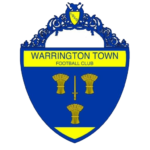
Warrington Town
Formed in 1949 by Jimmy Drinkwater, the club was initially named Stockton Heath Albion and competed in the Warrington and District League until 1953, when they moved to the Mid Cheshire League. Freddie Worrall became manager at the same time, and during a 13-year spell in charge, the club won the league in 1959–60 plus the League Cup in three consecutive seasons during the 1950s. During his thirteen years at the helm, Heath were one of the most feared sides in Cheshire football, winning a string of honours including the Mid Cheshire League Championship in 1959–60, the League Cup in 1953–54, 1954–55, 1955–56 and made several appearances in the Cheshire Amateur Cup Final. Several players from this successful period went on to join Football League clubs, including Ian Weir, John Green, Alan Foster and Roger Hunt, later a World Cup winner with England in 1966.
At the club’s 1961 AGM, it was decided to change the name to Warrington Town. In 1978 the club were founder members of Division Two of the Cheshire County League.[1] When it merged into the North West Counties Football League in 1982, the club were founder members of Division Three. They finished as runners-up in the first season, earning promotion to Division Two. In 1985–86 Warrington reached the semi-finals of the FA Vase, losing 6–3 to Halesowen Town in a replay. After finishing as runners-up in Division Two in 1986–87, the club were promoted to Division One.[1] In the same season they reached the FA Vase final, where they lost 3–2 to local rivals St Helens Town
In 1989–90 Warrington Town won Division One, and were promoted to the Northern Premier League. In 1992–93 they reached the quarter-finals of the FA Trophy, eventually losing 2–1 at Sutton United, and also became the first Division One club to reach the final of the League Cup, losing on penalties to Winsford United. The season also saw the club sell Neil Whalley to Football League Third Division side Preston North End for a £25,000, equalling the record fee paid for a Northern Premier League player. A few weeks later Warrington also sold Liam Watson to Preston for a record £60,000.
After finishing second bottom of the league in 1996–97, the club were relegated back to Division One of the North West Counties League. The following season they were relegated again.[1] In the 1998–99 season, teenage striker Damien Whitehead set a new club record of 52 goals in just 42 appearances, before signing for Football League Division Three side Macclesfield Town at the end of the season. The 1999–2000 season saw Town win the Second Division Trophy beating Tetley Walker F.C (known as The Holden Final) 2–0 at Prescot Cables, with two goals from Neal Holden, whilst the following season saw Warrington win Division Two and earn promotion back to Division One. They finished fifth in 2003–04, and were promoted to Division One of the Northern Premier League as part of the restructuring that led to the creation of the Conference North and South. When Division One was split into northern and southern sections in 2007, the club were placed in the southern division, but were moved to the northern section the following season.[1]
In 2013–14 the club finished third in Division One North, qualifying for the promotion play-offs. However, they lost 1–0 at home to Bamber Bridge in the semi-finals.
2014-15 season
In 2014–15 the club reached the first round proper of the FA Cup for the first time in their history, where they beat League Two club Exeter City 1–0 with a 7th-minute header from defender and plasterer Craig Robinson, the brother of MK Dons manager Karl Robinson, in a giant-killing at Cantilever Park.[2] The game was shown live on BBC Two. In the second round, Warrington Town lost 0–2 at Gateshead.,[3] televised live on BT Sport.
On 30 April 2015, the club lifted its first trophy in 14 years by defeating Farsley Celtic in the final of the Northern Premier League Challenge Cup (then called the Doodson Sport Cup) at Edgeley Park on penalties after the game finished scoreless.
Having played many games (14 in the FA Cup & NPL Challenge Cup alone), the club finished 9th in Northern Premier League Division One North.
2015-16 season
The 2015–16 season began with Warrington Town aiming for promotion to the Northern Premier League Premier Division for the first time in the club’s history. During the season the club set many new club records including scoring over 100 league goals and also winning over 30 league games in one season. Attendances at the club increased with a seasons average of 418 per game, including two crowds of over 1,000 for the games against Northwich Victoria and Prescot Cables
There was to be no repeat of the previous seasons FA Cup run as Town exited at the first hurdle in late August losing to Abbey Hey F.C.
After a relatively poor start to the season, with a win, a loss and 2 draws plus the FA Cup exit, Town embarked on an unbeaten run in the league of 9 wins and a draw from end August to mid October. During this unbeaten run, manager Shaun Reid was absent through illness for much of September, with Stuart Mellish, Lee Smith and the rest of the coaching staff standing in.
In the FA Trophy, Town won through 2 rounds before losing to AFC Fylde in November. The defence of the NPL Challenge Cup lasted just one match as they lost to Ramsbottom in a 3-times postponed match in early December.
There was another impressive unbeaten run in the league of 15 wins and a draw from late October until the first week of March, including separate runs of 5 and 6 clean sheets.
On 11 February, the Club parted company with manager Shaun Reid by mutual consent. The Club decided not to renew his contract at the end of the season and the board agreed to his request to be released from his contract immediately. Stuart Mellish & Lee Smith took over as the management team until the end of the season.
This did not seem to affect the club’s bid for promotion as Town lost only 2 more league games in the season, winning the other 12 games.
Needing just one point from the last 3 games of the season, Town won 6-1 at home against Prescot Cables in front of over 1400 spectators to seal the Championship title with 2 games remaining.
The final league record was 34 wins, 4 draws and just 4 defeats. Town won Division One North by 15 points setting division records of 106 points and 121 goals scored, beating the records set in the 2012-13 season. Town also scored in every one of the 42 league games.
Striker & Town captain Ciaran Kilheeney was the top scorer in all 3 NPL divisions with 37 league goals (the next highest was 29 goals). (He also scored 4 cup goals during the season.)
Ciaran Kilheeney, centre back James McCarten and goalkeeper Karl Wills were named in the NPL Division One North team of the season.
2016-17 season
The Club will play in the Northern Premier League Premier Division in 2016-17 (level 7 of the National League System). This will be the highest level in the Club’s history.
Credit: Wikipedia.com
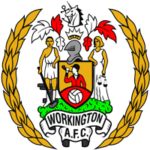
Workington A.F.C
Football in Workington has a very long history.[4] Close by and adjacent to the home of Workington A.F.C the folk game of “Uppies and Downies” is still an annual event. There are records about the game from 20 April 1775 in the “Cumbrian Pacquet” which is one of the earliest reports of a football match ever. This report says the match on which it is reporting is “long contended” thereby noting an even longer unwritten history of the game in this Cumbrian Town.[5]
Formation of the club
Association football was introduced to Workington in the 1860s and further popularised when a group for steel workers migrated to the town from Dronfield, Derbyshire. They were workers of the Charles Cammel and Co steel works that arrived in the town in 1884. It is estimated that 1,500 townspeople moved to Workington. ‘Dronnies’, as the people of Workington called the newcomers, formed Workington AFC in 1888.[6] This is also confirmed in a short history of the club which was produced as part of 16 page brochure in the club’s application to the Football League in 1951.[7]
The original Workington A.F.C. were one of the founder members of the Cumberland Association League in 1888 and played at Lonsdale Park. In 1894 they moved to the Cumberland Senior League, and in 1901 joined the Lancashire League. However, the league closed two seasons later, and they returned to the Cumberland Senior League. In 1904 the club were admitted to the Lancashire Combination, but in 1910 seasons they decided to economise and join the North Eastern League. However, after only one season, the club folded.
The new Workington A.F.C. was born in 1921 and immediately joined the North Eastern League. During the 1933–34 season, the club managed its best-ever FA Cup performance, reaching the 4th round, before losing to Preston North End. Later in the decade, the club moved to its present home, Borough Park. In 1951 the club was voted into the Third Division North of the Football League replacing New Brighton.[8]
The early Football League Years of Workington Reds are chronicled in a series of books entitled So Sad So Very Sad – The League History of Workington AFC part 1 (1951–58), part 2 (1958–64) and part 3 (1964–65).[9]
Football League years
Their first season in the League was a sign of things to come: the club finished rock bottom, and only improved by one place the following year.
From 6 January 1954 to 15 November 1955 the club was managed by Bill Shankly.[1][10][11] who would achieve fame between 1959 and 1974 with his success at home and abroad as manager of Liverpool.[12]
During the 1957–58 season they played the great Manchester United team known as the Busby Babes at home in the 3rd round of the FA Cup, attracting a record crowd of 21,000.[1][13] This was just a month before eight of the United players lost their lives in the Munich air disaster.[3][14] However, at the end of that season, the club dropped into the newly formed Fourth Division after a reorganisation of the Football League which saw the abolition of the regionalised Third Divisions.
In 1964, player-manager Ken Furphy led them to 3rd position, earning promotion to the Third Division. During both the 1963–64 and 1964–65 season, they made it to the quarter-finals of the League Cup, where they lost to West Ham United and Chelsea (in a replay) respectively.[2] During the latter cup run, the club beat Lancashire neighbours Barrow 9–1, a record which remained until the mid-1980s. The club’s proudest night was at Blackburn Rovers on 22 October 1964 in a Football League Cup 3rd round replay.[15] A Workington team of seasoned professionals such as Keith Burkinshaw, Dave Carr, Ken Furphy and Kit Napier[16] and a few young upstarts, like John Ogilvie who went on to a have a long career at the club that reached 430 appearances,[17] beat the Blackburn team 5–1 at Ewood Park.[18] The Blackburn team that night were full of England internationals, such as Ronnie Clayton, Mike England, Newton, Byrom etc. This was reported in one newspaper as “Incredible Fantastic Workington rubbed Rovers elegant noses in the mud of Ewood park to produce the finest result in their 80 year history”[19]
On 3 April 1965, Workington gave a debut to one of the youngest players ever to play in the Football League: Tony Geidmintis, who was ony 15 years 247 days old.[20] Geidmintis went on to play 328 games for Workington, scoring 37 goals, and made 452 league appearances in all before retiring at the age of 31. He died prematurely from a heart condition at the age of 43.
The mid-1960s also saw Workington give a debut to one of the earliest black professional footballers in the Football League. This was Peter Foley, who played over 80 games for Workington as a forward and scored some 16 goals for the club, before moving on to Scunthorpe where he kept a young Kevin Keegan out of the team for a couple of years.[21] Later, Foley became an ambassador for racial equality in football, receiving an Order of the British Empire for his work.[22]
In 1966, Workington finished 5th, narrowly missing out on promotion to the Second Division, but the next year they finished bottom and were relegated back to the Fourth Division. Manager Ken Furphy had moved on to Watford, taking some of Workington’s key players such as Dave Carr and Dixie Hale with him. This marked the start of Workington’s downward spiral back to non-league status.
In the 1968–69 season Workington gave a Football League debut to one of the game’s legendary goalkeepers, John Burridge.[23] Burridge, born locally, made his debut against Newport County on the last day of the 1968/69 season; in an inauspicious debut, one of his very first touches saw him punch the ball into his own net from a Newport corner.
In the late ’60s and early ’70s, Workington had “Johnny Martin on the wing”, a statement that became the most popular chant for Workington supporters. A cult hero at the club, Martin was often dubbed the “poor man’s George Best”, but to older supporters with longer memories, his tricks were reminiscent of the Clown Prince of Football Len Shackleton. Martin would, for example, dribble past two or three opponents, then sit on the ball and ask who wanted it next.[24][25] Martin played 224 league and cup games for Workington, scoring 33 goals. He joined the club in 1969 and was transferred to Southport in 1974.[26]
In 1974 and 1975 the club finished second from bottom, and in 1976 they finished bottom.[2] In 1977 the club won only four games, and again finished bottom of the League with attendances falling well below the 1,000-mark. This poor run led to the club being voted out of the League in the summer of 1977, replaced by Wimbledon.[27][28] Workington were the penultimate team to fail the re-election process before it was scrapped in 1986; Southport, who were voted out the year after Workington, were the last.
The club’s appearance record for the whole period of time that Workington played in the Football League was achieved by Bobby Brown. Born in Motherwell, Brown played for Polkemmet, Motherwell and Workington.[29] Brown, who was selected for the Third Division North representative team while at Workington, made a total of 469 league and cup appearances for the club between 1956 and 1967.[30] Bobby Brown, Malcolm Newlands, Jimmy Fleming (footballer, born 1929), Dennis Stokoe and Jack Bertolini were all recognised by the Football League and represented Workington A.F.C. in the Football League Third Division North vs. South Representative Games during 1950s.
Modern Non-League years
The club dropped into the Northern Premier League (NPL), but failed to trouble the top teams, never finishing higher than 7th, before they were relegated to the NPL First Division in 1988. They continued to struggle, eventually being relegated to the North West Counties League in 1998. However, the club managed to win the League at their first attempt (This was also their first ever championship).[31] After a 2–0 defeat at Kidsgrove Athletic on 27 February 1999, manager Peter Hampton set the squad a challenge, win their last 14 games and they would win the league. Sure enough after winning the next 13 games Workington squared up to league leaders Mossley at Borough Park in front of a 2,281 spectators, a league record only beaten by the formation of F.C. United of Manchester. Workington ran out 2–1 winners with goals from Stuart Williamson and substitute Grant Holt. Workington became the first club to return to the NPL First Division at the first attempt.[7]
As a result of a 7th-place finish in 2004, the club moved up to the NPL’s Premier Division during the non-league restructuring. They then continued their upward movement by winning the first-ever NPL promotion play-offs (after finishing in 2nd place) to win promotion to the Conference North.
Following a mid-table finish in their first season in Conference North, the 2006–07 season saw Workington finish in third place and qualify for the promotion play-offs where they lost 2–1 against Hinckley United. After two mid table finishes the following seasons, Workington made the play offs again in 2009–10 this time going down 4–1 on aggregate to Alfreton Town in the semi finals.
The Club’s longest serving manager Darren Edmondson left the club in December to take over at Barrow. Former player Ian MaDonald took over as manager prior to Christmas. He was unable to save the cub from relegation as Workington finished 22nd in Conference North.
Ian MaDonald resigned as manager at the end of the 2013/14 season. Gavin Skelton was appointed as his replacement in May 2014. Derek Townsley joined the club as Skelton’s assistant.
Skelton led the Borough Park side to the Northern Premier League Play-offs in his first full season in charge, finally falling to Ilkeston Town in front of 1,500 supporters at Borough Park. Skelton left Workington in June 2015 to take a coaching role with the Dumfries club Queen of the South. Derek Townsley was appointed as his replacement a couple of weeks later.
Credit: Wikipedia.com
